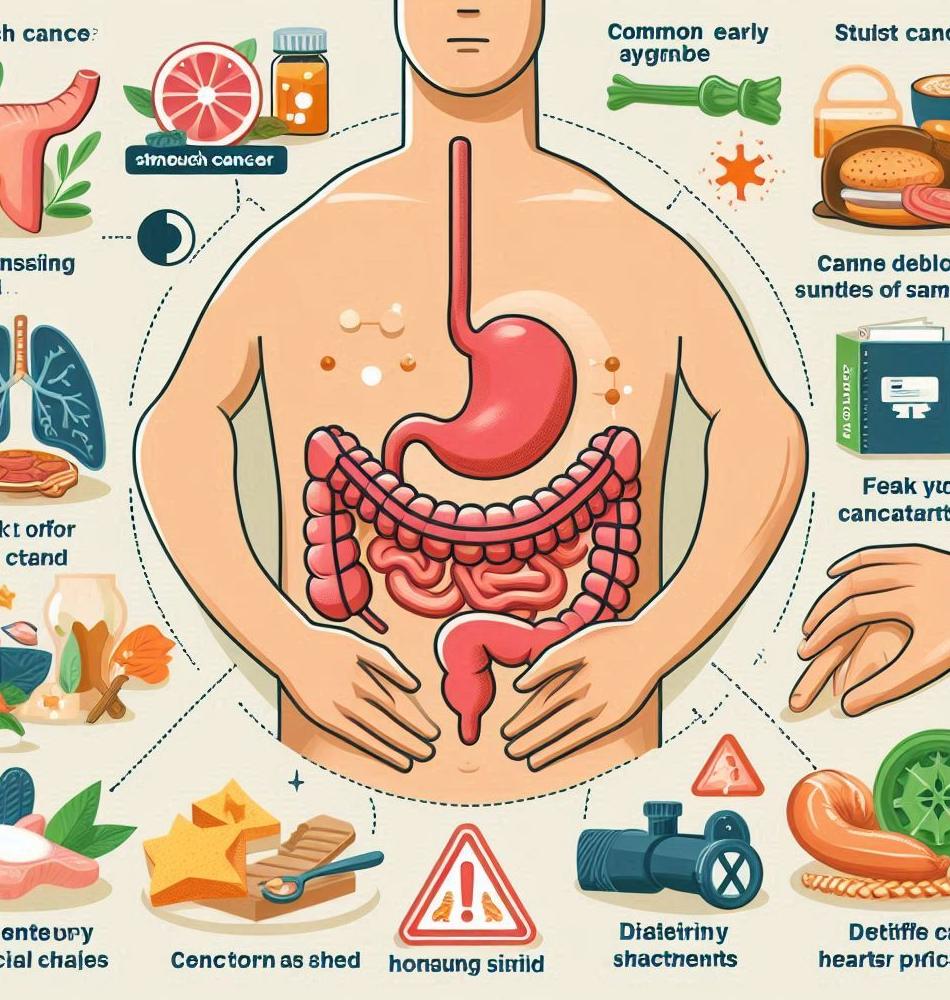Stomach cancer, or gastric cancer, is a type of cancer that starts in the stomach lining. It's a condition often overlooked until it's too late to intervene effectively. Recognizing the first signs can be critical, as early detection can lead to better outcomes. But what are those initial symptoms? What should you be paying attention to? In this article, we will delve into the early indications of stomach cancer, the symptoms that often confuse patients, and the importance of dialogue with healthcare professionals.
Understanding Stomach Cancer and Its Symptoms 🌟
Gastric cancer may not show noticeable symptoms in its early stages, but there are signals that you should not ignore. Common clinical symptoms can range from mild discomfort to worrisome indicators of more severe problems, which lead us to recognize the most prominent early signs.
Common Early Symptoms to Watch Out For 🔍
The signs that help in diagnosing stomach cancer are often non-specific and can mimic other digestive issues. Here are some symptoms that could indicate something more serious:
- Persistent stomachache or discomfort
- Nausea or vomiting, especially if it is ongoing
- Feeling full after small meals
- Indigestion or heartburn that does not improve
- Unintentional weight loss
- Changes in appetite or a sudden decrease in food intake
- Fatigue or weakness
Breaking Down the Symptoms: What Do They Mean? 🔍
Persistent Stomachache or Discomfort 🩺
A looming stomachache that doesn’t go away can be among the first signs of stomach cancer. It's crucial to take note of the nature and duration of the pain. Is it sharp, dull, or sporadic? These details can assist your healthcare provider in making a more informed diagnosis.
Nausea: More Than Just an Upset Stomach? 🤔
Nausea on its own may appear harmless. However, when it becomes a recurring issue and is associated with other symptoms, it demands attention. Regular episodes of nausea should not be brushed off as mere indigestion.
Feeling Full After Small Meals: Why is This Important? 🍽️
Experiencing a prolonged sense of fullness after eating, even small amounts, can be a troubling symptom. This sensation may stem from tumor growth that disrupts normal stomach function.
Risk Factors for Stomach Cancer 📊
While anyone can be at risk, certain factors increase the likelihood of developing stomach cancer:
- A family history of stomach cancer
- Helicobacter pylori infection
- Certain dietary habits, such as high salt and low fruit intake
- Age and gender, as men are generally at higher risk
- Advanced age, particularly over 50
Understanding the Role of Diet 🥗
The food we consume plays a critical role in our health. A diet high in smoked, cured, or pickled foods, alongside a lack of fresh fruits and vegetables, might increase your risk of stomach cancer. Consider incorporating healthier alternatives to combat this risk.
When Should You See a Doctor? 🚑
As with any medical condition, timely intervention is vital for the best outcomes. If you are experiencing the symptoms mentioned above, especially if they persist for more than a few weeks, it's essential to consult a healthcare professional. They can recommend tests and screenings to determine the cause of your discomfort.
Frequently Asked Questions 🤔
- What tests are used to diagnose stomach cancer?
- Are there any preventative measures for stomach cancer?
- How does stomach cancer treatment work?
- Is stomach cancer hereditary?
- What lifestyle changes can lower my risk?
Identifying Stomach Cancer in Different Demographics 👥
Interestingly, stomach cancer may present differently across various age groups and gender. It tends to be more common in older individuals and in men. This means the warning signs could vary slightly depending on these factors. Paying close attention to any unusual changes, regardless of demographics, is central to early detection.
Image Representation of Symptoms and Their Management 🎨
What If You Are Diagnosed? 📘
Receiving a diagnosis of stomach cancer can be overwhelming. Here’s what you can expect:
- Stages of cancer will be assessed through various tests
- A tailored treatment plan may be developed, including surgery, radiation, or chemotherapy
- Support groups and counseling can offer additional emotional and mental health support
Conclusion: Awareness is Key 🚀
Recognizing the first signs of stomach cancer can be crucial for early intervention and treatment. Familiarity with the symptoms, coupled with a proactive approach to health, can empower you to seek help when necessary. Remain vigilant, live healthily, and advocate for your well-being, for in the realm of health, awareness proves to be a powerful ally.


